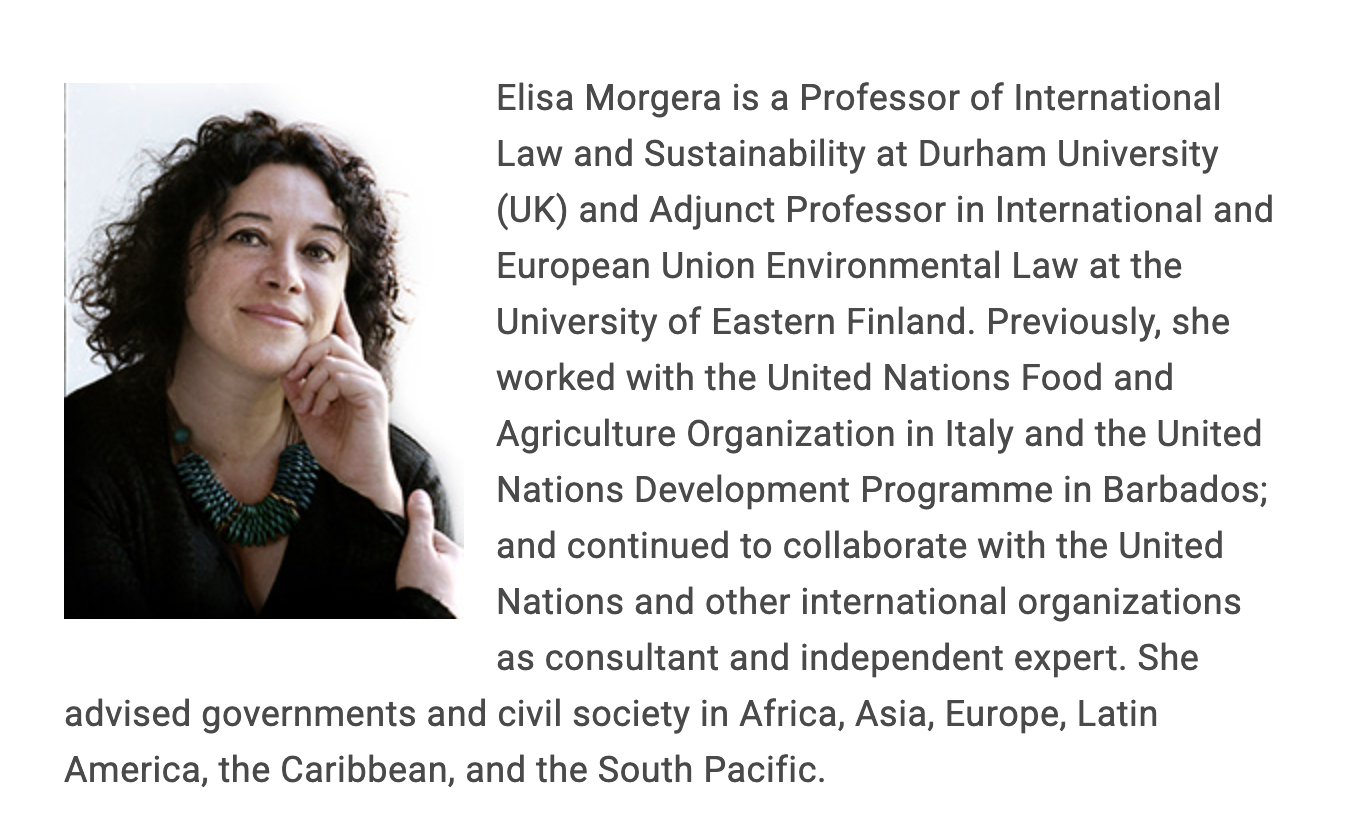Professor Elisa Morgera interviewed by the BBC News ahead of COP30.

Professor Elisa Morgera shared her insights with the BBC News on how the COP30 is a crucial multilateral conference to address climate change crisis.
"So far, we have not focused on the key scientifically-based priorities for effective climate action at the COPs. At the COP29 last year, we did not have a decision on mitigation, and we know that we are now facing the tenth year in a row of the hottest temperatures we've ever faced. Having a focus on mitigation, in particular on the fossil fuel phase out, is essential, and it is one of the moments of truth because we know there is no doubt in climate science. In broader environmental and human health science, fossil fuels are the main cause of climate change and of the other planetary crises we are facing."
"I think we need multilateralism and I think COP30 is the time to really take a meaningful check of whether it is fit for purpose. In particular, looking at the conversations on mitigation, but also by looking at the adoption, for instance, of a work program on just transition, because of course we do want the energy transition to be fair, not to harm workers not to harm communities for already facing the negative impacts of climate change. We need a meaningful space where all states come together, where we identify who is going to do what by when and also and this is why multilateralism is essential. We look at the finance, and we look at the duty to provide international finance and technology to all states to leapfrog into renewable-based economies. We need to look at the illicit financial flows and those that are preventing effective climate action and preventing the phase-out of fossil fuels. We need to look at fossil fuel subsidies, so all of that needs to happen in a multilateral forum."
"In practice it is important to have public conversations with communities who are facing energy poverty with taxpayers who are facing increasing costs of living, and clarifying where we are at with our transition to Renewables. We=e are in a really good place, renewables are already cheaper than fossil fuels in most parts of the world. We need to make sure that taxpayers and particularly citizens who are facing hardship because of the fossil fuel-based economies are informed about where we are at the transition, what else needs to happen, and what kind of resources States must put in place to support, for those that may face any hardship in that transition."
Professor Elisa Morgera has been appointed by the Human Rights Council as UN Special Rapporteur on Climate Change and Human Rights for the period 2024-2030. The position entails an independent mandate to engage the UN System, states, civil society, and the private sector on the human rights impacts of climate change and on ensuring that climate solutions contribute to the protection of human rights. Her role includes:
- make recommendations to States and the UN System on how to address and prevent adverse effects of climate change on human rights;
- Identify existing challenges, including financial challenges, in States’ efforts to promote and protect human rights while addressing the adverse effects of climate change;
- Synthesize knowledge, including Indigenous knowledge and local traditional knowledge, and identify good practices, on protection of all human rights and poverty alleviation in the context of climate change mitigation and adaptation on land and in the ocean;
- Support a gender-responsive, age-sensitive, disability inclusive and social-inclusion perspective in climate action.
https://www.ohchr.org/en/specialprocedures/sr-climate-change/about-mandate
Elisa will participate in the UN Climate Summit (COP30) in Belem, Brazil to advice governments, civil society, the UN and other international organizations on how to integrate human rights in the negotiations. She has co-developed with the Office of the High Commissioner for Human Rights (OHCHR) and the Brazilian Special Envoy on Just Transition and Human Rights the first-ever “Justice and Human Rights Days” at COP, as well as a “Pledge” initiative to catalyze transformative human rights-based climate action by States and non-State actors, including universities, as a response to the Advisory Opinion of the International Court of Justice on State obligations on climate change. She has also contributed to the conceptualization of a new European network for Environmental Human Rights Defenders, that will be launched at COP30 by the Council of Europe and OHCHR. She will also hold consultations with civil society on the topic of her next UN report on food systems, climate change and human rights (see call for inputs).
She has been invited to contribute to events organized by children and youth, civil society, academics, the World Health Organization, UN Climate Change Secretariat, UN Desertification Secretariat, as well as a high-level roundtable on the ICJ Advisory Opinion another organized by Mary Robinson as chair of The Elders.

